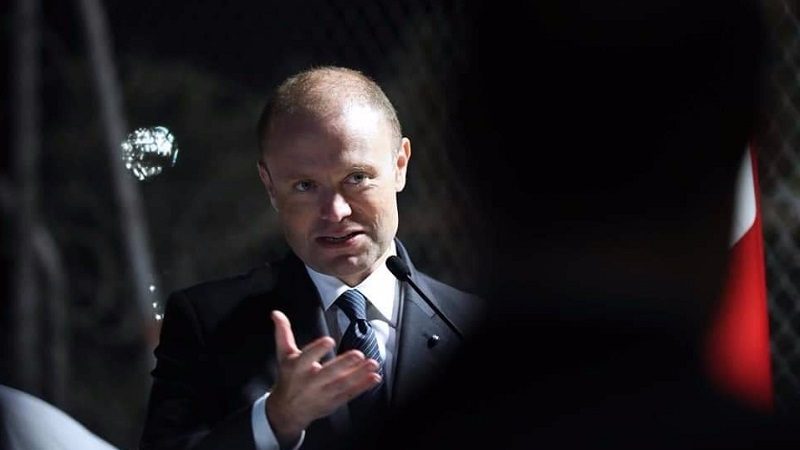Former prime minister Joseph Muscat is going to great pains to remind us, repeatedly, that he is not “formally under investigation” or “under formal investigation”.
He first said this to journalists on 21 August, when exiting the police headquarters after he was called in for questioning related to the claim made by Yorgen Fenech that the former prime minister had asked him if Keith Schembri featured in Melvin Theuma’s recordings.
Muscat took to Facebook the same day to reiterate this point; that the police have assured him “on the record” that he is not under investigation.
Following the testimony by Kurt Zahra on 31 August, where the inspector revealed that Muscat had been questioned under caution, the former prime minister was quick once more to upload another Facebook statement which replicated what he had said 10 days before.
Again, he said he is not being investigated, that he was called in for questioning because of the allegations made against him in a statement and that the police informed him that issuing a caution to someone being called in for questioning was standard practice.
Why has Muscat felt the need to state repeatedly that he is not under investigation? Why has Prime Minister Robert Abela felt the need to confirm this statement?
For something so “standard” Muscat’s statements are sure getting amplified. We know this is because of how powerful repetition is. If Muscat wishes to increase his supporters’ “fluency” on the matter, that is, how easily they process information and accept it as true, all he has to do is repeat something multiple times, let it get picked up by the news cycle, which will repeat it further and – presto – the work is done.
What’s not clear is why, through carefully worded statements, he appears to be conflating being suspected of wrongdoing and being investigated. The Shift has asked a legal expert to help clarify the matter.
What does to be questioned under caution mean?
It means that, either because a person is suspected of having committed an offence or because allegations made by others against him or her cannot be simply dismissed as frivolous, the police have a duty to caution the person being interrogated.
Can you be questioned under caution more than once?
Yes, even on the same subject matter, so long as the suspicion remains there.
Are all those who are called in for questioning, questioned under caution?
No. A witness to a crime in respect of whom there is no suspicion is not questioned under caution.
When is there no need for a caution?
The answer is found in Schedule Three of the Police Act (Cap. 164):
“The person subject to the questioning has the right to refuse to answer any question put to him. For these reasons, prior to any questioning of a person suspected of having committed an offence, a warning or caution, in the following form, shall be given: ‘You do not have to say anything unless you wish to do so, but what you say may be given in evidence’.”
For the “rule of inference” to kick in, a slightly more elaborate caution is administered:
“You do not have to say anything unless you wish to do so, but what you say may be given in evidence; however, should you refuse to say anything or omit to state some fact, a rule of inference amounting to corroborative evidence may be drawn by the Court or any other adjudicator if during the trial you will put forward any defence based on a fact which you did not state during interrogation”.
Muscat stated that the police assured him that this is a standard procedure when questioning someone about allegations made against them. Is this true?
Yes, it is true it is standard procedure, but there must always be in the minds of the people putting the questions an element of suspicion regarding the person questioned. Otherwise the person questioned would be a mere witness without any shadow hovering over him or her, in which case no caution is administered.
Is being questioned under caution the same thing as being investigated?
No, it is not. A person being investigated is always questioned under caution. But a person may also be questioned under caution when, although the focus of the investigation is another person, the person questioned is, in the minds of the police, under some suspicion. The person questioned would, in journalistic jargon, be “of interest to the police”.
In his Facebook posts, Muscat also mentions how the police always carried out their duties during his tenure. Evidence emerging as the public inquiry proceeds suggests otherwise. Therefore, just because Muscat keeps telling us he’s in the clear does not automatically make it so.












